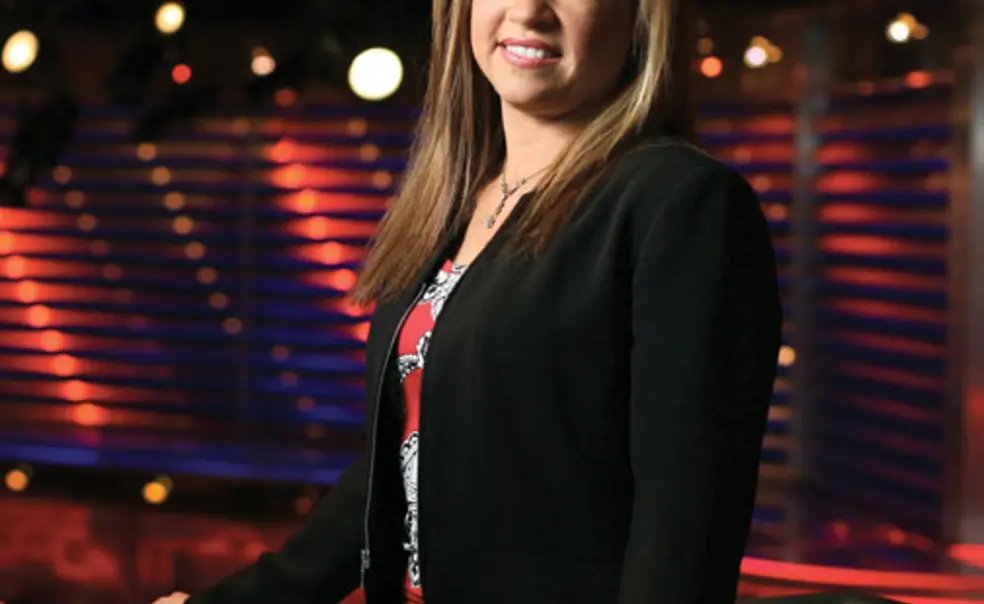Alumni Profile: Stephania Bell '87, real-world tips (for fantasy sports)
The NFL’s opening Sunday was a busy workday for Stephania Bell ’87, ESPN’s injury analyst. She started her morning with an online chat, helping fantasy football team owners choose their lineups, and then headed over to the set of Fantasy Football Now, an online TV show that leads up to kickoff.
With the games under way, Bell joined ESPN’s other on-air analysts in the network’s “war room,” and when key players like Philadelphia quarterback Donovan McNabb were injured, Bell reported on the breaking news — a process that lasted well into the night.
“It was a long day,” she says. “I was tired at the end. But I can’t think of another way I’d rather be spending my Sunday.”
Bell, a former physical therapist, took an unusual route to ESPN, beginning in her own fantasy-football league. A friend noticed that other team owners were coming to Bell for advice on whether or not they could rely on an injured player.
“The injury reports that were issued by the [NFL] teams were so vague,” she explains. “People knew that I worked with athletes with these kinds of injuries, so they wanted to know, ‘What can I expect?’ ”
Bell’s friend suggested that she try writing a Web column about sports injuries for the growing cohort of people playing fantasy sports — by one count, nearly 30 million North Americans now have their own teams. She pitched her idea at a meeting of the Fantasy Sports Trade Association and found one taker, and then another. In 2007, she landed a full-time job at ESPN, focusing mostly on football and baseball injuries.
With two decades of experience rehabilitating injured amateur athletes, Bell has an understanding of how specific injuries affect on-field performance. That knowledge, combined with video footage and consultation with medical experts, enables her to make nuanced evaluations.
Bell’s first career, like her current one, had an unusual start. She majored in French literature at Princeton and planned to apply to medical school. But she discovered a talent for working with athletes as a student athletic trainer and chose a master’s program in physical therapy instead.
Her current work, explaining knee ligaments to football fans, seems a long way from analyzing Balzac’s La Comédie Humaine, the subject of her senior thesis. But she credits Princeton with starting her on an interesting path. “I really believe that if you get a foundation like you do at Princeton,” she says, “you can do anything.”












No responses yet